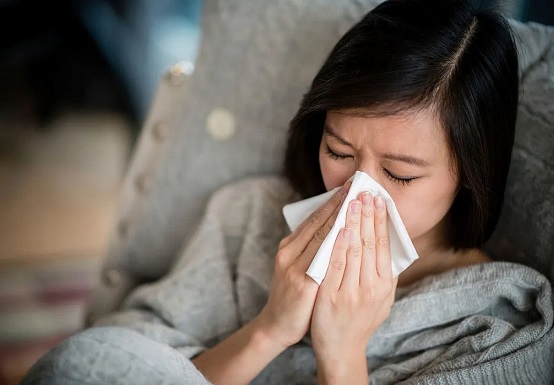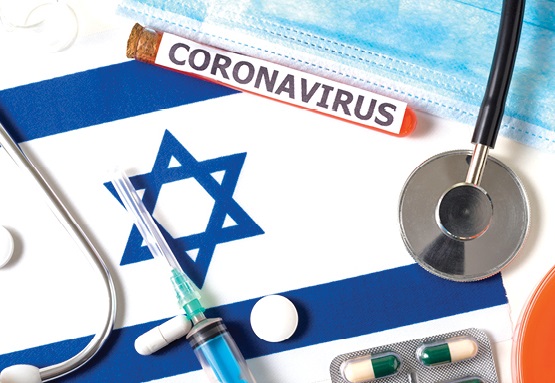Questions on COVID-19 answered

With the COVID-19 being a world-wide health concern right now, Dr Piotr Chlebicki, Infectious Diseases Specialist of the Infectious Diseases Medical Clinic, shares with us more about information on COVID-19 and coronaviruses.
WHAT IS CORONAVIRUS AND HOW DIFFERENT IS COVID-19?
The Coronavirus Disease 19 or COVID-19 is one type of virus that causes respiratory symptoms.
Coronaviruses are a large family of viruses causing illnesses ranging from the common cold to pneumonia (a more severe lung infection). A new coronavirus strain has been identified in Wuhan, China in 2019. The Coronavirus Disease 19 (COVID-19) has caused cases of severe pneumonia in China and cases have been exported to other countries and cities.
There is human to human transmission of COVID-19. For now, the evidence suggests spread is via droplets. The virus is carried within droplets emitted from an infected person over a short distance, such as when the person coughs or sneezes. If these droplets come into contact with the eyes, nose or mouth of another person, directly or indirectly through hands that have come into contact with these droplets, the other person may become infected.
Common signs of infection include respiratory symptoms, fever, cough, shortness of breath and breathing difficulties. In more severe cases, infection can cause pneumonia, severe acute respiratory syndrome, kidney failure and even death.
HOW DOES COVID-19 COMPARE TO THE SARS EPIDEMIC IN 2002?
Before this current outbreak, there were at least six types of coronaviruses that we have known about. Of these, two are SARS (severe acute respiratory syndrome) and MERS (Middle East respiratory syndrome).
The remaining four are benign viruses that cause the common cold.
For the current COVID-19, it is another type of virus that is less severe than SARS but more contagious in nature as it tends to spread faster. It may be fatal to a vulnerable group of people especially among the elderly and those people with underlying health problems or compromised immune systems.
WHAT ARE THE SYMPTOMS OF COVID-19 AND HOW IS IT DIFFERENT FROM PNEUMONIA?
Pneumonia basically means an infection of the lungs. The symptoms across all types of pneumonia are very similar. They include fever and cough. In more extensive forms, there will be the shortness of breath. Pneumonia can be either viral or bacterial in nature.
To treat it, we must first determine whether the cause is viral or bacterial, and then medicate it accordingly.
Medication will be given to treat the virus or bacteria, and then the symptoms.
COVID-19 is a new coronavirus strain. Common signs of infection include respiratory symptoms such as fever, cough, shortness of breath and breathing difficulties. In more severe cases, infection can cause pneumonia, severe acute respiratory syndrome, kidney failure and even death. There is currently no proven specific treatment or anti-viral drug for COVID-19.
HOW CONTAGIOUS IS PNEUMONIA AND COVID-19?
The contagiousness of pneumonia depends somewhat on whether it is viral or bacterial in nature. Most types of pneumonia are caused by droplets which are generated by people when they cough and can travel up to a metre. When healthy people inhale these droplets, they can be infected.
There is also a rare type of viral pneumonia that is airborne, which means that the droplets can linger in the air for a very long time.
Coronavirus and COVID-19 are usually also spread via droplets. The virus is carried within droplets emitted from an infected person over a short distance, such as when the person coughs or sneezes. If these droplets come into contact with the eyes, nose or mouth of another person, directly or indirectly through hands that have come into contact with these droplets, the other person may become infected.
WHAT PRECAUTIONS SHOULD BE TAKEN TO AVOID TRANSMISSION OF COVID-19?
If people have flu-like symptoms or unwell, they should avoid meeting others as much as possible and cover their mouths when they cough or sneeze to prevent droplets from travelling.
The precautionary measures we are taking will only be effective in containing the spread of the virus if every individual plays a part. Even with community transmission, the most effective method to prevent such transmission is through good personal hygiene, and social responsibility on the part of those who are unwell. Avoid close contact with people who are unwell or are showing symptoms of illness.
Current evidence suggests that the likely modes of transmission are mainly through contact with droplets from infected individuals, either directly or indirectly through hands that have come into contact with these droplets. The most effective method to prevent such transmission is through good personal hygiene, and social responsibility on the part of those who are unwell. Everyone should wash their hands regularly, avoid touching their faces, avoid going to crowded places and stay home if you are unwell.
If one is unwell, do wear a surgical mask and seek medical attention immediately.
HOW IS COVID-19 DIAGNOSED?
First of all, the patient must display symptoms of fever and respiratory symptoms such as cough, shortness of breath and/or runny nose. The doctor will then examine the patient and order a chest X-ray. The coronavirus-infected lung looks very different from that of a healthy lung. Respiratory specimens (e.g. nasopharyngeal swabs or sputum samples) are further taken from the suspect patient case to be tested at the laboratory to determine if the patient is infected with COVID-19.
WITH EARLY DIAGNOSIS AND TREATMENT, CAN FATALITIES BE AVOIDED?
It depends not only on the type of infection but also on the patient. Young and healthy patients generally recover well. The elderly with multiple health problems are at higher risk and may result in mortality.
ARE THERE ANY EFFECTIVE VACCINES AGAINST COVID-19, CORONAVIRUSES OR PNEUMONIA IN GENERAL?
To date, there is no specific medicine recommended to prevent or treat COVID-19. However, those infected with COVID-19 should receive appropriate care to relieve and treat symptoms, and those with severe illness are often treated in the intensive care unit.
Regarding vaccines, we currently do not have vaccine for coronavirus. We have vaccines for certain types of bacterial pneumonia as well as influenza vaccine. Current 4-in-1 vaccination for influenza is quite well-matched to circulating viruses.
The influenza vaccine is recommended for people of all ages. The pneumonia vaccine is particularly recommended for at-risk people such as the elderly and people who have multiple medical problems. It is also recommended for people with weakened immune systems caused by medications such as steroids, chemotherapy, the HIV virus and so on. It is also recommended for people with healthy immune systems who have compromised lung function caused by asthma or other factors.
HOW LONG DO COVID-19 PATIENTS TAKE TO RECOVER FROM THE DISEASE?
Young and healthy patients generally recover well within a few weeks. The elderly with multiple health problems are at higher risk of complications and may take a longer time to recover from the disease. Some of the patients, who are weaker, may succumb to the disease when they develop such infection.
HOW CAN WE STRENGTHEN OUR IMMUNITY SYSTEM DURING SUCH TIMES?
Balanced diet and healthy lifestyle including doing regular exercise makes us stronger and helps our body to fight infections.



